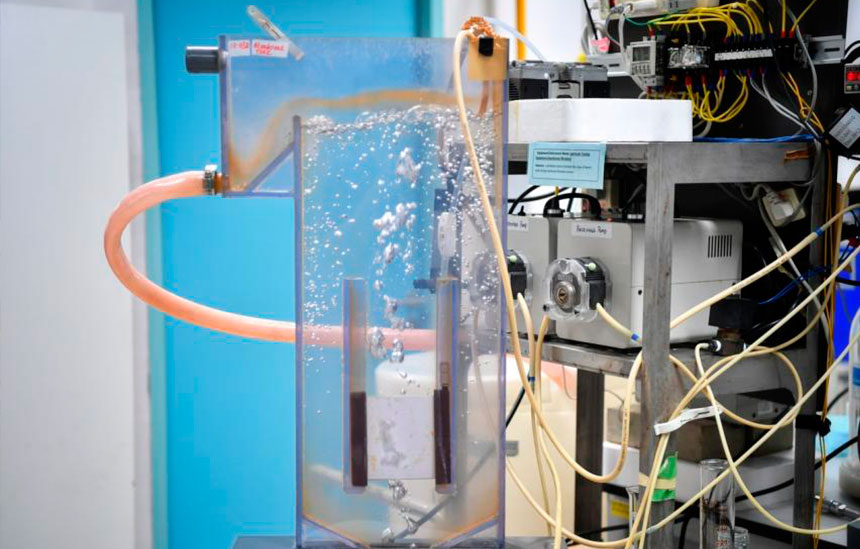National water agency PUB is trialling new technology that aims to make the energy-intensive desalination process more efficient.
Achieving this will help to boost the country’s water and energy security, especially as the Republic moves to reduce its reliance on fossil fuels for energy.
Two new types of membranes will be tested at PUB’s research and development plant in Tuas to see if these are more durable, cost-efficient and energy-saving compared with the usual polymeric membranes used in the process to convert seawater to drinkable water, said Dr Pang Chee Meng, PUB’s chief engineering and technology officer.
The two types include ceramic membranes, and those made from material that mimics proteins found in nature.
Singapore, which lacks natural water resources, counts desalination as a way for it to safeguard its water security.
Other strategies include importing water from Malaysia, collecting rainwater in reservoirs and treating used water.
But the desalination process is known to be energy-intensive, with traditional methods currently using about 3.5 kilowatt-hour (kWh) of electricity per cubic m of water.
This is because high pressure is needed during the reverse osmosis process to push water through the polymeric membranes to filter out salts.
PUB aims to reduce the system-level energy consumption of desalination to less than 2kWh per cubic m.
Ceramic membranes, which are being tested in other water treatment facilities here, are known to have longer lifespans, higher permeability and more robust chemical and physical properties.
Trials are also ongoing with Japanese water tech firm Meiden Singapore to determine the resilience of these ceramic membranes to various algal concentrations to ensure that they can withstand severe algae blooms, Dr Pang said.
Such blooms can occur in marine environments.
The company is currently constructing a 120 m3/day pilot at PUB’s Tuas R&D Facility, which will be ready this month (April).
Biomimetic membranes, on the other hand, are so-called for the way they mimic natural biological systems, such as those found in mangroves.
Mangrove trees, which grow in seawater, have the unique ability to filter out high concentrations of salt from the water they take in.
They can also transport water from their roots up to the rest of the plant with minimal resistance.
Developing membranes that mimic these abilities can save a significant amount of energy because lower operation pressure would be required to operate the desalting process, said Dr Pang.
PUB is working with the Nanyang Environment And Water Research Institute (Newri) at Nanyang Technological University (NTU) to develop membranes which are enhanced with aquaporin proteins or synthetic biomolecules that help to improve their permeability.
Aquaporins are proteins found in living organisms that enhance the transfer of water through a cell membrane, while synthetic biomolecules are a new innovation that replicate the effect of these aquaporins – at a lower cost.

